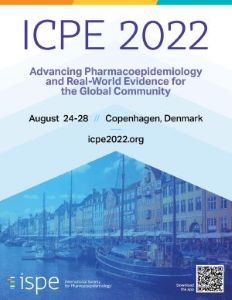Til Stürmer, MD, MPH, PhD, FISPE
UNC Gillings School of Global Public Health
My career as a medical researcher started with assessing the role of analgesics on kidney function and mortality, which culminated in a paper in the New England Journal of Medicine. After my formal training in epidemiology at Harvard School of Public Health, I continued pharmacoepidemiologic research with analyses of the role of nonsteroidal anti-inflammatory drugs (NSAIDs) and aspirin on cognitive function, risk for colorectal cancer (CRC), and kidney function. Since 2003, I have focused on pharmacoepidemiology, developing and implementing methods to improve validity of nonexperimental research on the effects of medical interventions on clinically relevant outcomes based on real world data (mostly: US Medicare).
Since 2018, I am the Nancy A. Dreyer Distinguished Professor and Chair of the Department of Epidemiology, UNC Gillings School of Global Public Health. As former Director of the Center for Pharmacoepidemiology and Fellow and past President of ISPE, I have been able to assemble an outstanding inter-disciplinary team of researchers with expertise in epidemiology, pharmacoepidemiology, internal medicine, geriatrics, and biostatistics from within and outside of UNC to advance study design and analytic methods to provide valid evidence for relative benefit and harm of clinically relevant treatment alternatives in older adults. Funded by the National Institute on Aging (R01 AG023178, now R01 AG056479) since 2005, the research team published over 110 papers cited over 5,000 times focusing on developing and implementing novel methods to answer clinical questions of importance to older adults in the absence of alternative evidence.
For UNC's Clinical and Translational Science Award, NC TraCS, I continue to lead Comparative Effectiveness Research and Epidemiology as co-Director of Biostatistics, Epidemiology, and Research Design (BERD). CER/Epidemiology serves as the "front door" for nonexperimental research studies.
Poster(s):
- (86) Antihyperglycemic Use in Hemodialysis-Dependent Kidney FailureSunday, August 28, 20228:00 AM – 1:45 PM CEST
- (287) Distinguishing Death from Disenrollment: Applying a Predictive Algorithm to Reduce Bias in Estimating the Risk of Rehospitalization
Saturday, August 27, 20228:00 AM – 6:00 PM CEST- (154) Identifying Hospitalizations in Patients with Medicare Supplemental Insurance
Friday, August 26, 20228:00 AM – 6:00 PM CEST- (16) Long-Term Health Events and Healthcare Utilization After COVID-19 Hospitalization Among Children and Adults Insured by Medicaid, North Carolina, United States, 2020-2021
Sunday, August 28, 20228:00 AM – 1:45 PM CEST- (170) Racial and Ethnic Categories in Propensity Score Analyses: An Application in US Medicare Beneficiaries Initiating DPP4 Inhibitors vs Sulfonylureas
Sunday, August 28, 20228:00 AM – 1:45 PM CEST- (162) Selective Sampling: A Novel Approach to Simulating Biased Samples for Methods Research
Sunday, August 28, 20228:00 AM – 1:45 PM CEST - (287) Distinguishing Death from Disenrollment: Applying a Predictive Algorithm to Reduce Bias in Estimating the Risk of Rehospitalization

